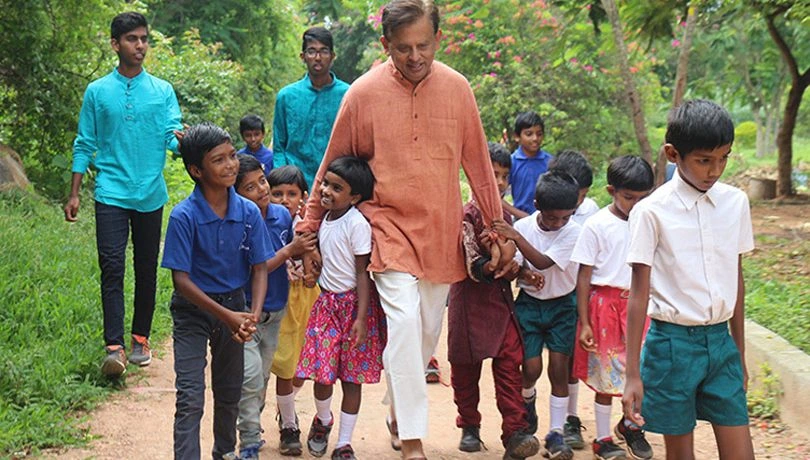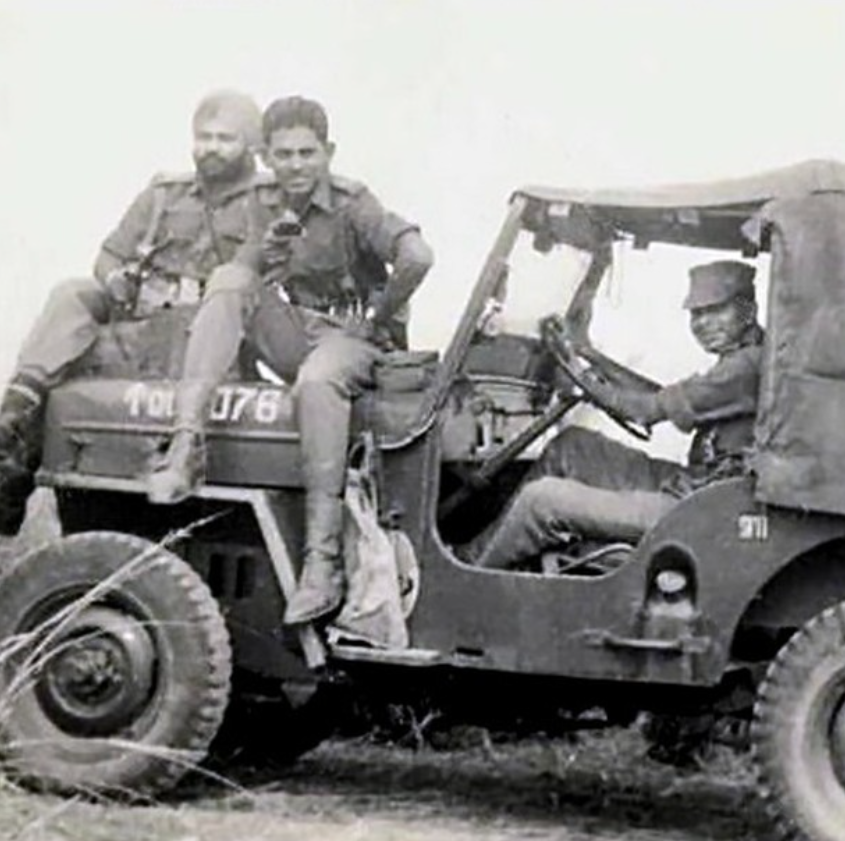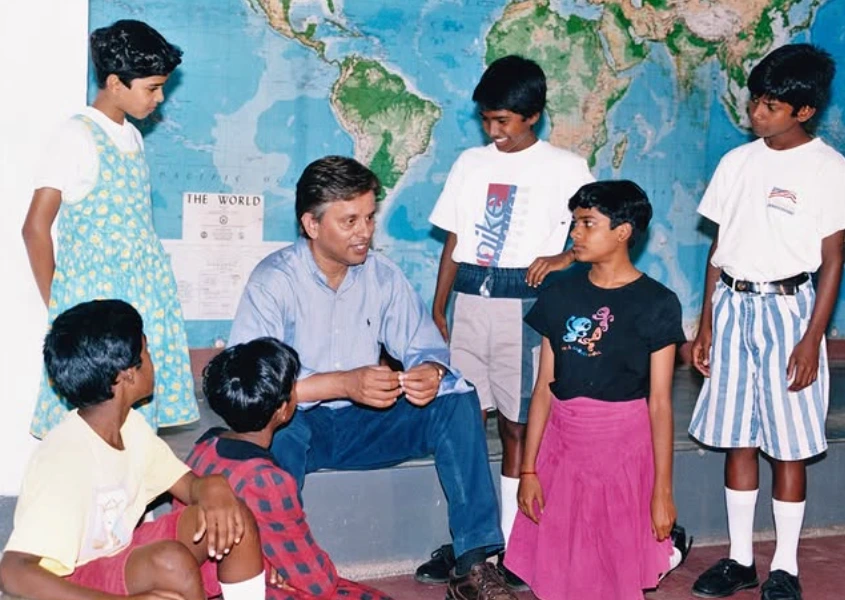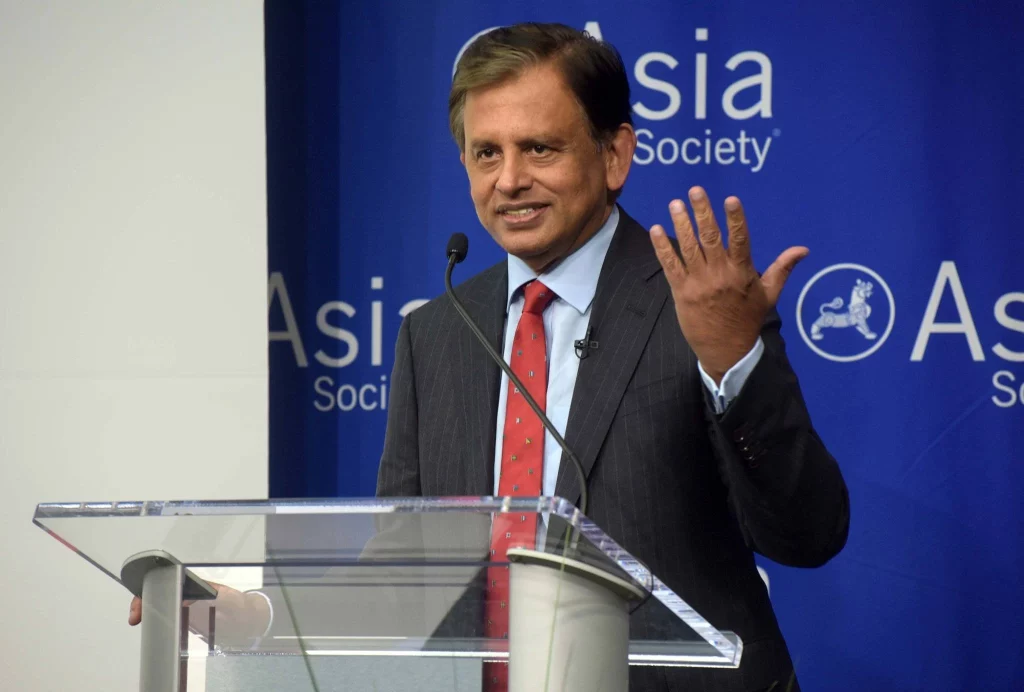(March 1, 2025) In a quiet town where brick factories and hunger set the stage, Megala’s childhood was marked by the harsh limits and unfulfilled dreams of a young girl from a poor “low-caste” family. Clad in threadbare clothes and haunted by witnessing the violence her father faced, she knew too well the price of crossing forbidden lines. To her rescue came Shanti Bhavan, a haven of warm meals, steady love, and a promise of a brighter future. After fifteen years of steadfast support from the school, Megala earned a full scholarship to study at the prestigious Duke University. Megala’s journey was illuminated by the transformative power of Dr. Abraham George’s visionary initiative, which has rewritten the destinies of hundreds of lives like Megala’s for over three decades.
A soldier turned academic, entrepreneur, and philanthropist, Dr. George Abraham has uplifted underprivileged youngsters, many of whom have secured opportunities in leading companies and at top universities across India, the United States, Europe, Japan, and beyond. His relentless efforts have empowered individuals and communities in many more ways through The George Foundation and Shanti Bhavan Educational Trust.

“My decision to work in the social arena and fight poverty and discrimination originated when I was barely 18 years old. It was not something new. It was a lifelong calling,” says Dr. George, who left behind a successful career in the United States to return to India.
He came back at the age of 49. “When I went to America, I was 22, and I came back only at 49. I didn’t want to wait until I was 50 to start making a difference. I wanted to do it before that,” the philanthropist tells Global Indian. “The George Foundation was created just three days before my 50th birthday, I didn’t want to wait any longer,” he smiles.
Army days to activism
Dr. George was born in the seaside city of Trivandrum, Kerala, the second of four children in a modest family. At fourteen, he began a disciplined journey at the National Defense Academy, India’s elite military officers’ training institution. His initial posting in 1966 following the Sino-Indian war was at Se La mountain pass at 14,000 ft. altitude in the Himalayas bordering China. It was a path that instilled in him a lifelong commitment to service. At the end of ten months of service, he was injured in a dynamite explosion, and later, upon return from convalescence, served for another two years in the rank of Captain at the Indo-Pakistan border.
When I was blown up in a dynamite explosion, I asked myself – why did I survive? If I had been a fraction of a second late, I would have been killed. That moment defined my purpose – to devote my life to helping the deprived.
Dr. Abraham George
Even before that reading books by Albert Schweitzer and other such authors deeply influenced me. Their ideas ignited my desire to work among the poor. Their words planted the seed, but it was the life-threatening experiences during the army days that made the decision final.

Dr George (centre) during his Army days
After three years of service in the artillery, Dr. George moved to Alabama, USA, to join his mother, who was a trailblazer. At a time when women in India weren’t expected to pursue higher education, let alone careers in science, she earned a Ph.D. in Physics, the second woman in India to do so. Later, she worked as a professor and a research scientist at NASA.
Dr. George reinvented himself in America, earning a doctorate in developmental economics and international finance from New York University’s Stern School of Business. His career in the U.S. was marked by innovation and leadership – transitioning from a role at Chemical Bank to launching his own venture, Multinational Computer Models Inc., and also serving as Managing Director at Credit Suisse and Vice Chairman at SunGard. Yet, a larger purpose had always been a part of his life.
I could have kept making money, but I knew I had to stop at some point. I needed to use what I had earned and invest in social ventures before it was too late. I left the army, pursued education, and built financial resources because I knew that one day, I would have to channel everything toward a larger purpose.
Dr Abraham George
In 1995, driven by a resolve to address social inequities, Dr. George returned to India to start The George Foundation. It’s a charitable trust dedicated to reducing injustice and empowering communities.

Dr George Abraham during his early days of philanthropy
Transforming India’s social landscape, One vision at a time
Dr. Abraham George’s journey from soldier to philanthropist is about his commitment to fighting the inequities he witnessed firsthand in India. Determined to drive meaningful change, he founded The George Foundation (TGF), a charitable trust, in Bangalore to improve the lives of economically and socially disadvantaged communities.
Among the initiatives he embarked on in India are the Shanti Bhavan Residential School to provide high-quality education to children from socially and economically deprived backgrounds, and the Indian Institute of Journalism & New Media a premier post-graduate institution aimed at fostering a free and independent press in India.
The George Foundation also established a 200-acre banana farm, which became Southern India’s second-largest. More than just an agricultural enterprise, the farm reinvested its profits into community development, empowering lower-caste women and fostering their economic independence. Further, he set up Baldev Medical & Community Center to serve the healthcare needs of 15 villages across Tamil Nadu and Karnataka states.

Leading ‘Project Lead Free’
From its early days, Dr. George set a transformative agenda. Through Project Lead Free, the screening of 15,000 children and 5,000 adults across India’s seven major cities revealed that over half the children had unsafe blood lead levels, with a large percentage facing severe toxicity. Collaborating with the CDC, WHO, World Bank, and US EPA, he led an awareness campaign that resulted in the removal of lead from gasoline. Subsequently, the National Referral Center for Lead Poisoning in India, a partnership with St. John’s National Academy of Health Sciences, was formed to continue lead poisoning prevention.
“I was happy to see the kind of impact that Project Lead Free made,” says the philanthropist whose work encompassing education, healthcare, and environmental sustainability, has had far-reaching and lasting impacts.
View this post on Instagram
In recognition of his contribution, he was awarded numerous accolades, including the Hind Ratan award bestowed by I.K. Gujral, the former Prime Minister of India, and the NYU Stern School of Business’ Stewart Satter Social Entrepreneurship Award, among many others. He is also the author of three books and has served on the boards of Human Rights Watch and the International Center for Journalists.
Rising above challenges
The world financial crisis of 2006-2008 threatened Shanti Bhavan’s survival and placed a heavy strain on Dr. George’s finances. Yet, undeterred, he and his son Ajit spearheaded a remarkable recovery through innovative fundraising and strong community support, ultimately restoring stability within five years. Today, it is a model for grassroots, donor-supported NGOs.
The year 2014 was a turning point for the recognition of Shanti Bhavan’s impact on a global scale. Impressed by the school’s mission, Academy Award-winning filmmaker Vanessa Roth brought her film crew to capture its essence, eventually producing Daughters of Destiny, a four-part Netflix series released in 2017 that earned widespread acclaim.
The year 2025 marks 30 years of his social work and purposeful homecoming. Fueled by the support of generous donors worldwide, he has laid the groundwork for a more equitable future for many socially disadvantaged people.
It’s not about how many people we can help today. It’s about empowering people so they, in turn, uplift their families and communities. That’s the real impact.
Dr Abraham George
Dr. George’s resolve to create change has more than paid off. The foundation he couldn’t wait to start before turning 50 has transformed several lives, and for decades, he has nurtured and empowered underprivileged children, giving them a future they once could only dream of. “ I get flooded with emails and letters filled with love from them on every birthday.” he laughs. It’s a poignant reminder that the impact Dr George Abraham set in motion 30 years ago has only deepened with time, growing stronger with every life he has touched.
View this post on Instagram




